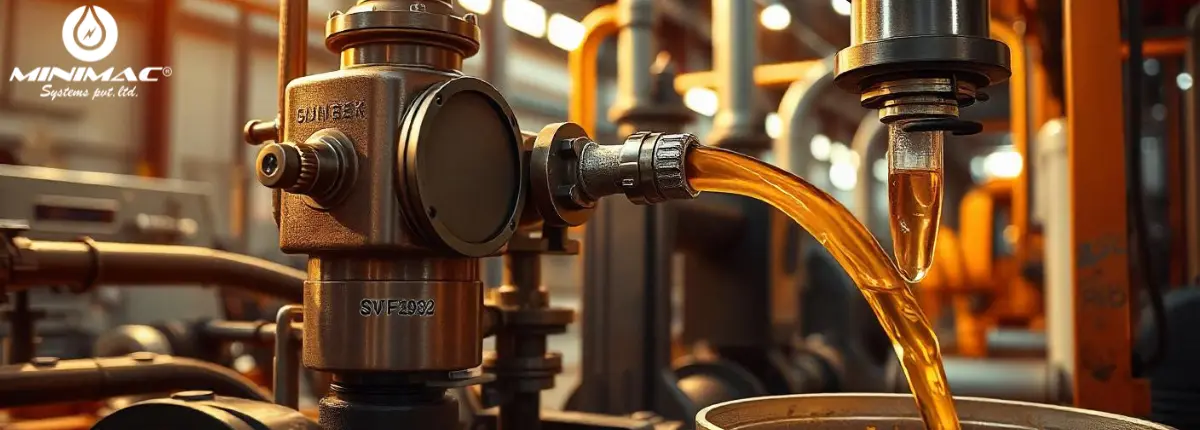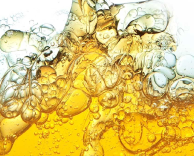What is Oil Filtration? Importance, Types, and Benefits Explained
Introduction
The filtration of oil is an essential process to ensure that machinery, engines and hydraulic systems are working effectively and efficiently. It is about filtering impurities like dirt, water and metals from oil so the oil keeps operating at peak performance. In an age where machines work in more and more extreme conditions, it is important to know about Oil Filtration for businesses that depend on lubrication systems. The present work provides an in-depth review of oil filtering involving its significance, types, methods, advantages, difficulties and current advancements in the area.

Understanding Oil Filtration
Oil filtration is the process of purifying oils by eliminating contaminants that contribute to the lower quality of the oil. There are several ways contaminants get into the oil (from wear, from the environment, from poor oil-change practices, etc). The objectives of oil filtration are to improve the performance of the oil while protecting the mechanical equipment and increasing its service life.
Importance of Oil Filtration
Proper oil filtration is necessary for several reasons:
- Machine Protection: When foreign particles are in oil, machines wear faster, resulting in unexpected outages and repairs.
- Increased Efficiency: Clean oil means machines run at peak efficiency, which leads to decreased power usage and superior overall performance.
- Longer Oil Life: A clogged filter can make your engine work double time, resulting in frequent oil changes, wear, and greater maintenance costs.
- Environmental Conscience: Effective oil filtration eliminates waste, and diminishes environmental impact by extending the life of lubricants and without spills.
Types of Oil Filtration
There are a variety of oil filtration systems, and all are created to target different requirements:
- Mechanical Filtration: Filters out particles with physical barriers. Typical such filters include paper, spin-on, and mesh-type filters.
- Centrifugal Filtration: It uses centrifugal force to remove contaminants from oil. It is especially good at getting rid of debris and sludge.
- Magnetic Filtering: Magnetic filters pull ferrous materials out, removing metal from continuing to circulate through the system and damaging sensitive components(Source).
- Chemical Filtration: There are also chemical methods to clean oil, as they can break down contaminants or transform them chemically to be more easily filtered out.
- Vacuum Filtration: Literally applying a vacuum (pressure) to pull the oil through a filter media, leaving behind fine contaminants such as particles and water.
Hydraulic Oil Filtration
Filtration of hydraulic oil is necessary for the continued performance of the hydraulic systems that are used in many applications, ranging from construction to manufacturing to transportation. Hydraulic systems use pressurized oil to transfer energy, and any contaminants will cause the loss of efficiency, accelerated wear and potential system failure.
- Filtration Techniques: The most common method used with hydraulic oil filters is to extract particles from the oil on its way to sensitive parts. These include filter elements for return line, pressure and offline applications.
- Importance: oil cleanliness It is important to keep hydraulic oil clean so that the system operates effectively, avoids downtime and lasts a long life.
Lube Oil Filtration
Lube oil filtration is dedicated to the cleaning of lubricating oils for engines and industry. Lube oil provides reduced friction between moving parts, reducing wear and allowing for maximum performance.
- Filtration Methodologies: Typical techniques include depth filtration, surface and centrifugal filtration, designed to minimize particles or solid contaminants, oxidation byproducts, and moisture.
- Importance: Clean lube oil not just leads to better engine performance but also provides better fuel economy and hence less hazardous emissions. Every day, lube oil filtration can prolong the life of vehicles and heavy equipment.
Turbine Oil Filtration
Turbine oil filters are specifically designed for use on steam and gas turbines used in power-generating and industrial applications. Turbine oils have to be free from impurities, otherwise, they will hinder the operation and can easily cause damage.
- Primary Filtration Methods: Turbine oil filtration is generally performed by a multi-stage filtration system using coalescer filters and fine filters to separate both water and contaminants.
- Criticality: For reliable power generation, we need to protect the turbines and it is essential to have the right turbine oil filtration.
The Oil Filtration Process
In general, the oil treatment method comprises the following steps :
- Gathering of the Oil: The dirty oil is gathered from the machines.
- Pre-filtration: the use of a coarse filter or a screen to remove large particles.
- Filtration: The oil is filtered with a filtering media that traps even smaller pieces of debris and dirt. This could be mechanical, centrifugal, magnetic, or chemical, depending on the mode of treatment.
- Quality Check: The oil is subjected to a test where it is checked for quality and cleanliness, ensuring that it matches the required standards.
- Reintroduce: The now-clean oil can be reintroduced into the equipment for peak performance and protection.
For More Information - Click Here.
Benefits of Oil Filtration
There are many advantages to having high-quality oil filtration systems:
- Lower Maintenance Costs: Since it eliminates any wear and tear on mechanics, good filtration can reduce the number of repairs and replacements you need.
- Enhanced Equipment Performance: Clean oil helps machines run smoother, which can improve productivity and efficiency.
- Save Money: Longer oil life means fewer oil changes, saving you time and money for your company.
- Environmental Advantages: With the efficient use of resources, oil filtration contributes to ecological sustainability and minimizes both waste and pollution.
Challenges in Oil Filtration
Even though the advantages of oil filtration are outstanding, there are multiple impediments that the oil milling industry encounters while using this method:
- Sources of contamination: At the same time, it can be hard to determine and overcome various sources of contamination and often requires being vigilant to monitor and maintain them.
- Filter types: It's hard to decide what type of filter is suitable for what application, as each has its own pros and cons.
- Operating Conditions: Filtration systems may be compromised under extreme operating conditions, high temperatures and pressures.
- Equipment Cost: The cost can add up quite a bit in the beginning, despite the savings that can be had with an oil filter, should you choose a good filtration system to rely on.
Innovations in Oil Filtration
The technology is always evolving and being updated in oil filtering:
- Smart filter systems: Filtration systems connected to the IoT can track the quality of an oil in real-time, notifying the operators in the early stages of an issue.
- Nano filtration: Utilizing nanotechnology, some of its new filters can screen out even smaller particles, improving oil purity and performance.
- Self-Cleaning Filters: They are among the sophisticated kinds of filters and can automatically clean out pollutants away streamlining maintenance needs and down memory space.
- Eco Filters: Biodegradable filters are being designed to minimize the environmental consequences of disposable filters.
Conclusion
Filtration of oil is an important part of the maintenance and working of machinery to maintain the necessary performance and to extend the life of lubricants. Industrial oil filtration, such as hydraulic oil filtration, lube oil filtration and turbine oil filtration, refer to the processes of separation of oil and water and into clean, dry and reusable oil and water by breaking down the oil and constant removal of water that impacts oil quality by bringing dirt particles to the surface. As with all evolving technology, innovative oil filtration will bring with it tighter and tighter efficiencies and environmental benefits.
For More Information, visit our website -https://www.minimacsystems.com/oil-filtration-systems




